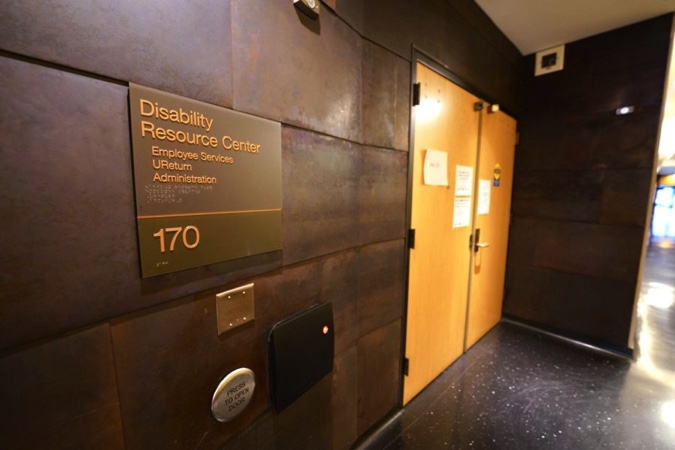This article is part of a series on sexual assault and greek life at the University of Minnesota.
* * *
With the suspension of Delta Upsilon last month over sexual assault allegations and alcohol and substance misuse, renewed attention has been levied on the greek life community’s response to sexual assault.
While University of Minnesota fraternity leaders condemn acts of sexual violence, they say they’re not adequately prepared to tackle the issue on campus when allegations arise.
“It’s a much bigger issue than what [the Interfraternity Council] is equipped to handle,” said IFC president Simon Beck, adding that he thinks sexual assaults in fraternities represent one “bad apple” rather than a culture.
To raise awareness about sexual assault prevention, the University’s greek community — about 11 percent of the school’s enrollment — hosts two annual events: a mandatory new member training and a fundraiser called Walk a Mile in Her Shoes.
While some members have raised issues with fraternity culture — including those who donned their letters for a March 4 rally against sexual assault on fraternity row — some experts say dissent is uncommon in a community that frowns on violating brotherly trust.
Advocates, University officials and some greek life representatives agree more can be done to prevent sexual assault.
Still, they say it’s up to fraternity members to implement lessons shared through sexual assault training to create positive change within the community.
Fraternities an outlet for drinking, sex
First-year college students are often attracted to greek life because it’s perceived as a place to party and drink, said Nick Syrett, a historian at the University of Northern Colorado who authored a 2009 book, “The Company He Keeps,” on the history of fraternities.
Fraternities, which were first founded in the early 1800s, have fostered a culture of drinking and hazing since their inception, Syrett said. As more men joined fraternities, hazing became an accepted tool for men to pledge their allegiance to the brotherhood.
At surface level, fraternities serve as a channel for men to meet women. Because of that, sex is often seen as a given in fraternity culture, Syrett said.
“There’s often a great deal of pressure upon men in fraternities … to ‘score with women’ and that’s how you prove to your brothers that you’re really a man,” he said.
In fraternity culture, a groupthink mentality of power and control can emerge, said University Aurora Center Director Katie Eichele.
“There’s plenty of evidence that fraternity men at some schools have used alcohol in order to incapacitate young women, in order to have sex with them,” Syrett said.
A 2015 study by United Educators — a higher education risk management and insurance company — found that out of 305 sexual misconduct allegations at 104 schools, 10 percent of the perpetrators were fraternity members.
There’s also research pointing to heavier drinking within greek life than outside of it.
According to the 2015 study, 78 percent of campus sexual assaults involved alcohol. Syrett and Eichele said alcohol is commonly used as a date rape drug.
And when sexual assault occurs, the tendency to sweep issues under the rug isn’t situational, according to Syrett, who said the first rule of a fraternity is to remain loyal to brothers — even if that entails secrecy.
At the University’s Delta Upsilon chapter, former members Dawson Kimyon and Russell — who asked to be identified by first name only — said they saw their chapter president defend a brother twice accused of sexual assault.
The accused member was later found responsible for both assaults by the University and was expelled.
But training 18-to-21-year-olds how to confront one another about topics like sexual assault can be challenging — especially in a culture where complex power dynamics are at play, experts say.
Eichele said young people often feel there’s a threat associated with standing up to peers.
“We have to identify what holds people back from those conversations — what are they afraid of? What’s that risk?,” Eichele said.
Too big an issue to handle
On a chapter-by-chapter basis, University of Minnesota fraternities — which self-police via sober monitors at parties, for example — sometimes utilize additional tools to prevent misconduct.
If a chapter wants to continue training members after they’ve completed their new-member modules, they can do so on their own accord, but there are no requirements in place, said IFC President Simon Beck.
He said he thinks the University would inform greek leaders when the school’s investigation finds a member responsible for sexual assault.
While the University’s reporting process is confidential to maintain the privacy of involved parties, final results of the school’s disciplinary process — including offenses, sanctions and the name of perpetrators — are public record.
James Ehrmann, Office for Fraternity and Sorority Life program director, said if a greek member violates the student conduct code, the office would hope to receive details of the violation from the Office for Equal Opportunity and Affirmative Action, which conducts the sexual misconduct investigations at the University.
Both Beck and Ehrmann said they would deal with sexual assault on a case-by-case basis if informed by the University. So far, in both of their tenures, they haven’t been in contact with the University about sexual assault proceedings.
If the University sanctions a student found responsible for sexual assault, it isn’t guaranteed that those sanctions would apply to the student’s greek membership, Ehrmann said.
“We want to respect the right of each individual fraternity or sorority to have control over their membership decisions and to determine criteria for membership in the organization,” he said.
OFSL staff members are available to consult with greek leaders when a member is accused of sexual assault, but there is no exact process on how leaders should react when presented with accusations, Beck said.
“I can’t say we have one hard and fast rule with this because every situation is different. We have to play it case-by-case to make sure we’re being effective in our response,” he said.
Currently, Beck said the greek life’s sexual assault task force can’t handle much more than its two annual events.
“There’s always room for improvement with everything we do, but I think [Walk a Mile in Her Shoes and new member training] are great steps, and that’s what we’re doing with the sexual assault prevention task force,” he said.
Finding a fix
The Aurora Center trains new greek life members on sexual assault and violence, bystander intervention and masculinity, but research shows that sexual assault education is most effective if it’s delivered repeatedly, Eichele said.
However, beyond serving as a preventative and reactionary resource to greek life, Eichele said the Aurora Center can’t force members to buy into training.
“That’s for them to decide,” she said. “You can have the processes and the education in place and all the education in the world, but knowledge alone does not create change.”
She said while there may be more attention on sexual assault within greek life because it’s easier to research a defined community, that definition also makes targeted intervention a greater possibility.
In the next year, the Greek Sexual Assault Prevention Task Force hopes to designate one member in every greek house as a sexual health advocate through the Aurora Center’s training program, said IFC co-sexual assault prevention coordinator and Phi Gamma Delta sophomore Tyler Johnson.
The intensive 40-hour training would then establish an ongoing commitment with the center, Eichele said.
For now, the Aurora Center is revising its training to include more discussion between participants, which they hope to start this semester, she said.
“I truly believe that if we’re taught to respect and see everyone as equals … we’ll see a reduced number of violence,” she said. “And then we have to be willing to kick out those who do engage in that behavior.”
At Phi Kappa Psi, campus sexual assault is addressed at least once a month during chapter meetings, according to one of the fraternity’s members who requested anonymity. He said the chapter recently used Delta Upsilon as an example of what can happen when a chapter is scrutinized for its response to sexual assault and discussed how to avoid similar situations.
Some greek members have begun to foster discussion around sexual assault: One small group, Greeks Against Sexual Violence, supports survivors.
Former fraternity members, too, have their own ideas on how to eliminate sexual assault in greek life.
Russell, the former Delta Upsilon member, said he thinks chapters need to do a better job of letting new members know that sexual assault is an issue on campus.
Dawson Kimyon — who resigned from DU after alerting its international headquarters of problems within the house — said chapters should create step-by-step plans on handling sexual assault allegations.
And Cameron Gray, a former Alpha Delta Phi member, has advocated shutting down the system altogether — a step several smaller, liberal arts universities have already taken.
“National [greek] organizations need to do a better job of actually making the brothers care about the no sexual assault policies, so some of it is on them,” Syrett said.
“But I think ultimately, some universities need to just bite the bullet and ban the offending fraternities from campus,” he said. “What they tend to have done is suspend the chapter for a year, and in the end, it ends up being more like a slap on the wrist.”







